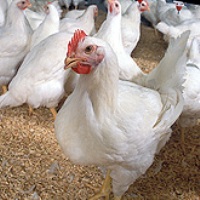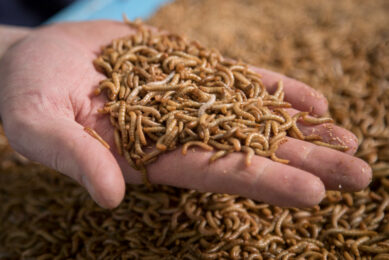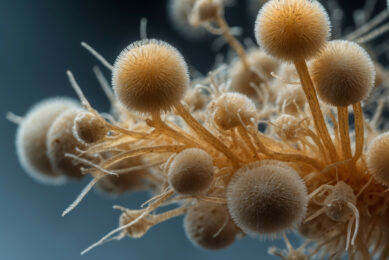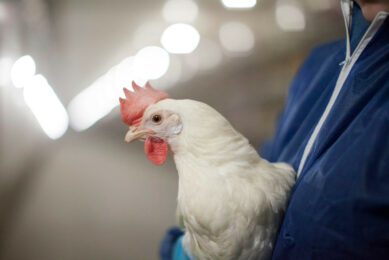Chlorate additive cuts Salmonella and E.coli

A patented feed additive developed by Agricultural Research Service (ARS) scientists could help reduce the risk of Salmonella and Escherichia coli O157:H7 infection from meat or poultry products.
the ARS Food and Feed Safety Research Unit (FFSRU) in College
Station, Texas, mixed a chlorate-based compound into livestock feed or water two
days before slaughter. When fed at roughly 0.5 to 5 percent of an animal’s diet,
this powder-like additive was very effective in reducing Salmonella and
E. coli O157:H7 in the animal’s gastrointestinal tract.
In studies with cattle, levels fell from 100,000 E.
coli cells per gram of fecal
material to 100 cells per gram. Similar results were obtained in swine and
sheep. To test the chlorate compound in poultry, FFSRU microbiologist Allen Byrd
gave it to more than 200 market-age turkeys and 2,000 broiler chickens 48 hours
before they went to processing.
The incidence of Salmonella dropped from
35% to zero in turkeys, and from 37% to 2% in broilers. Anderson
developed this experimental chlorate five years ago, at the urging of the National Cattlemen’s Beef
Association, which supports research on novel ways to reduce E. coli
and other problematic microbes in beef. The swine research was financially
supported with funding from the National Pork Board.
ARS has patented
the technology, and FFSRU researchers are working to further develop it to make
it ready for approval by regulatory agencies.











